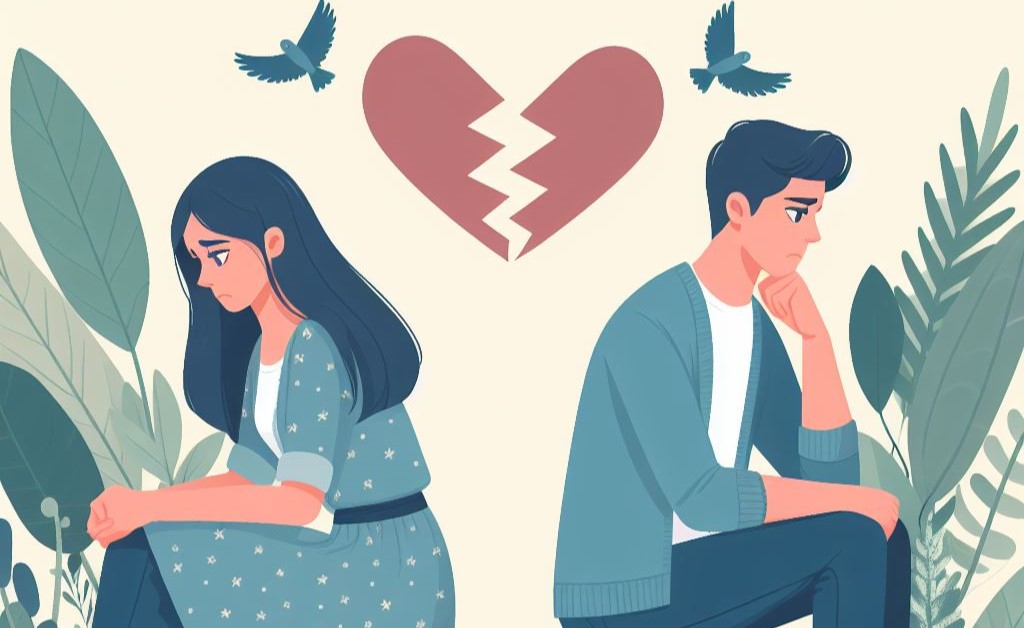Breaking up after three years – it’s a journey laden with emotions, challenges, and the quest for healing. The end of a significant relationship can be an overwhelming experience, and if you’re here, you’re not alone. In this exploration of navigating a 3-year relationship breakup, we delve into the depths of emotions, offer practical coping strategies, and share real-life experiences to guide you through this challenging chapter of your life.
Understanding the Emotional Challenges after a 3-Year Relationship Breakup

Breaking free from a 3-year relationship is no easy feat, and the whirlwind of emotions that follows can be overwhelming. Therefore it is crucial to acknowledge and embrace these feelings as a natural part of the healing process.
Grief and Loss
In the initial stages, you might feel an intense sense of grief and loss. Allow yourself to mourn the end of this chapter. It’s okay to cry, reminisce, and let those emotions flow – it’s part of the healing journey. For instance, create a “memory box” with mementos that hold positive memories, allowing you to revisit them when you’re ready.
Loneliness and Isolation
You may experience moments of loneliness and isolation. Reach out to friends, family, or a support group. Connecting with others can provide comfort and a sense of belonging during this challenging time. Consider joining online communities or local meetups where individuals share similar experiences, fostering a supportive environment. Also don’t forget to read our real-life experiences in all articles, such as in this one further below!
Confusion and Doubt
Confusion and doubt about the decision to end the relationship are common. Remember why you made that choice and focus on your well-being. Seek validation in your own growth and resilience. Reflect on instances where you overcame challenges and emerged stronger. This self-affirmation can help dispel doubt and reinforce your decision.
Hey there, I know navigating a 3-year relationship break-up is like riding a stormy sea of emotions. It’s okay to feel lost and broken. Give yourself the grace to grieve, surround yourself with a support system, and remember, healing is a journey, not a race. Embrace the pain, learn from it, and believe that brighter days are on the horizon.
Coping Strategies for 3-Year Relationship Breakup

Now, let’s talk coping strategies – practical steps to help you weather the storm and emerge stronger:
Self-Care
Invest time in self-care. Whether it’s indulging in a favorite hobby, practicing mindfulness, or simply taking long walks, prioritize activities that bring you peace and joy. For example, allocate a specific time each day for self-care rituals, creating a structured routine that contributes to your overall well-being.
Support System
Build a strong support system. Surround yourself with friends and loved ones who understand your journey. Share your feelings, and don’t be afraid to lean on those who care about your well-being. A supportive friend can be a listening ear, offering comfort and companionship during tough moments.
Professional Help
If the emotional burden becomes too heavy, consider seeking professional help. A therapist or counselor can provide valuable guidance and support tailored to your specific needs. They can offer coping mechanisms, perspective, and a safe space for you to express your emotions openly.
Remember, each emotion you experience is a step forward in your healing process. In the next section, we’ll explore the importance of validation and support in your journey.
Real-Life Insights: What happens after a 3-Year Relationship Breakup?

Let’s draw inspiration from the experiences of others who have navigated the emotional challenges of a 3-year relationship break-up. Consider the story of someone who, in the face of grief, found solace in creating a personalized “healing playlist,” filled with uplifting songs that resonated with their emotions.
Another individual battled loneliness by actively participating in local support groups. Connecting with others who shared similar experiences provided a sense of companionship and understanding during moments of isolation.
Amid confusion and doubt, some have turned to journaling as a therapeutic outlet. Documenting thoughts and reflections not only helped in gaining clarity but also served as a tangible record of personal growth over time.
